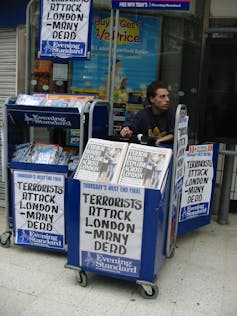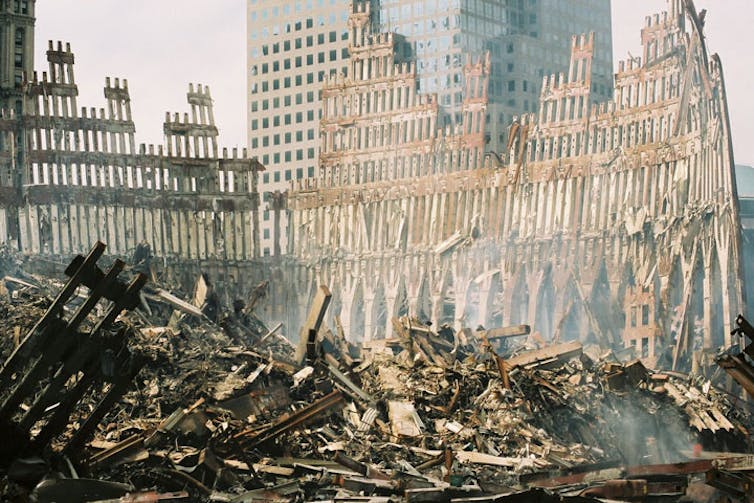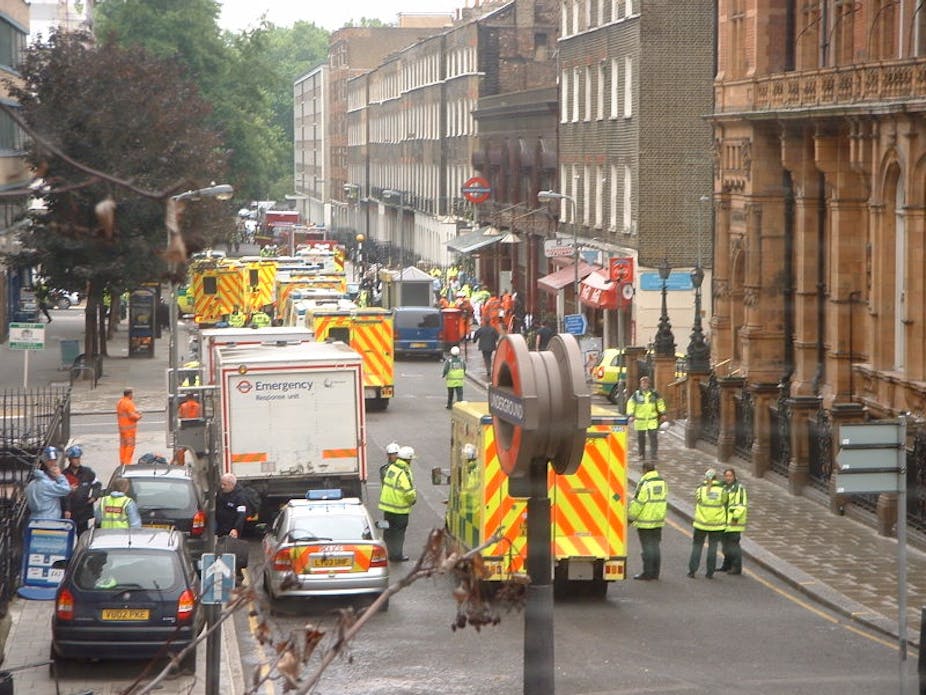What does one billion Pounds Sterling of Olympics security get you? Rapier surface-to-air missiles in Blackheath common, the Royal Navy’s largest battleship moored in the Thames (complete with eight Lynx helicopters), at least 23,500 security personnel (with some estimates doubling this figure) including 13,500 British troops (4,000 more than Britain sent to fight in Afghanistan), 500 FBI agents and a city-wide image recognition surveillance system.
Many would say that the figure of one billion pounds falls well short of the real cost - which in 2005, when London was announced to be the winner, was put at one 250 million pounds. But then in 2005 the total cost of hosting the games was said to just 2.4 billion and now it has blown past 11 billion.
How much should be spent on Olympics security, especially in this post 9-11 age? Athens spent at least one billion in 2004 and Beijing surely spent at least as much in 2008. By that measure spending for London is well in line but it is impossible to make any sort of quantitative case for return on investment. (On a macro level, spending on the Olympics probably made sense for a rising China but it certainly did not for a failing Greece and it is hard to see how an austerity-ridden Britain can possibly come out ahead - but that is a whole other matter).
Three weeks out from the opening of the games now is not the time for counting the cost of either the London Olympics or its security. Indeed, the 7th of July is not a time when anyone wants to advocate for economising on security. Seven years ago, on the 7th of July 2005 four young men from Leeds and Buckinghamshire blew themselves on a red London double-decker bus and three tube trains. The cost of their operation was a mere few thousand pounds of industrial chemicals, hardware and one-way tickets to London. Plus, of course, their own lives and the lives of 52 other people. It’s that priceless part of the equation that makes pricing security so impossibly difficult.

Will the Olympic venues be secure? Almost certainly. In fact, this will arguably be the most secure mass public event in all of human history. Will those Rapier missiles in Blackheath Common and on East London rooftops ever be fired? The possible scenarios are passingly remote. The tens of thousands of security personnel - will they be used? They will surely be busy and it is hard to argue against their presence (though only last year we were told that ten thousand would be all that was required).
So what of the 7/7 scenario - is one million plus pounds enough to guarantee that the London transport system will be safe from similar attacks from previously unknown attackers flying below the collective radar of the security services? Sadly in such matters there are no guarantees.
It is, however, safe to assume that London is as secure as can it can reasonably be made so. That security comes largely not from all of the very visible hardware belonging to the British Armed Forces but rather from hundreds of intelligence operatives and analysts hidden from the public eye in darkened rooms and covert operations.

The 7/7 bombers succeeded largely because, at the time they were preparing for their attack, they were unknown and invisible to the security services. The real heavy-lifting of security now depends on careful surveillance and tedious scrutiny - the monitoring of chat rooms and phone lines, the matching of names and the piecing together of vast jigsaw puzzles of apparently unrelated data. The security of London 2012 depends on there being no more surprises like there were seven years ago. And that’s the hard part. Securing Olympic venues is (relatively) easy. Keeping a city, and indeed a nation, of much softer targets safe from people that you don’t know are there is an immensely more difficult task.
Have the organisers of the London games, and the long-suffering British tax-payers, paid more than they should have? That much is certain - it is the Olympic games after all, and the pattern of under-quoting and over-spending is all too well established. Is one billion plus pounds, and unprecedented intrusions on privacy, too much?
It probably is, but if the unseen security machine behind the Olympics succeeds in stopping unknown young men striking again in the name of an invisible war - and no more lives are lost - then who would argue that it was not worth it?

